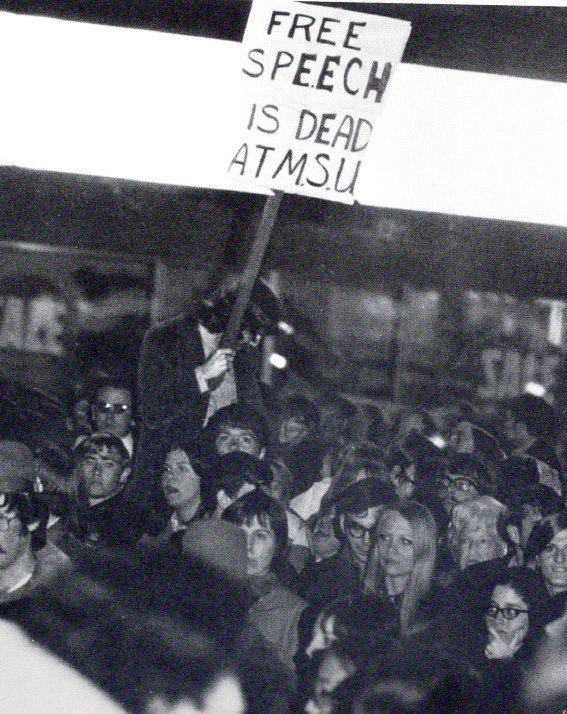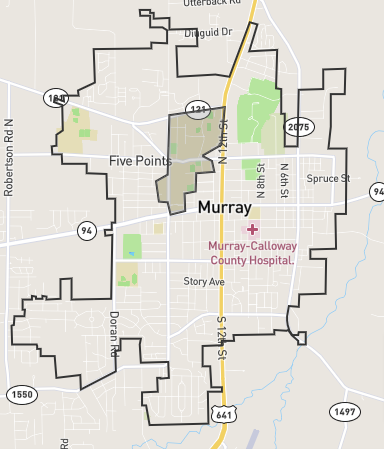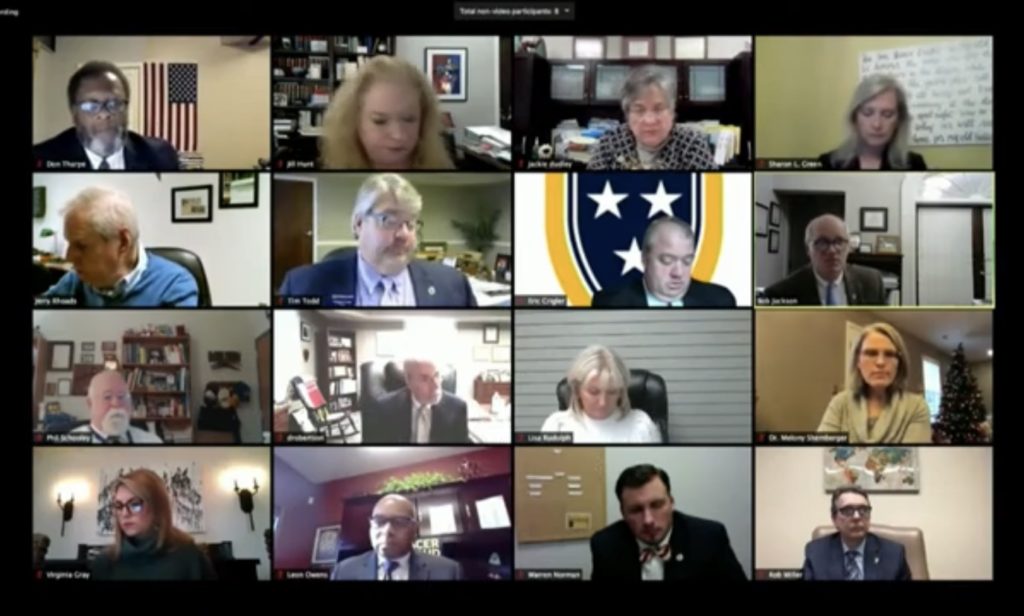
It is common for Murray State students to express their opinions on issues across campus. Pictured above, students rally against individuals invited to speak for an event called “Insight” in March of 1971. Students believed the topics were controversial and due to protest, only one of four speakers made an appearance.
In 1945, Winston Churchill stated, “America at this moment stands at the summit of the world.”
This made sense as the United States approached the 1950s with a strong military and a stable economy. But among these things, there was also an issue dividing the nation.
In today’s society, it is hard to see drinking from the “wrong” water fountain as a punishable crime. In the 1950s and 1960s, however, it was all too familiar to black people. That was until crusaders for equal rights such as Martin Luther King Jr. and Rosa Parks took stands against discrimination and segregation. Of course, then, he was not considered a popular public figure fighting for what was right. He was simply a man with a dream, not unlike many Americans today.
Though The Civil Rights Movement is now recognized, at one time it was nothing more than America going through a large-scale social change. As many students study in sociology, social change is any alteration in the norm of a single culture.
In honor of Martin Luther King Jr. Day, community members, students and faculty not only participated in activities on campus but also pondered what could be the next movement similar to the ‘60s Civil Rights Movement.
Among the issues considered, individuals recognized America as the era where women fight for equal pay, gay marriage is being legalized and marijuana is flooding Colorado and Washington with extra tax dollars.
Stephen Offutt, senior from Madisonville, Ky., believes the issues society is dealing with today still have a long way to go, but are not impossible to reach.
“When you actually think about it, both gay marriage and the legalization of weed can be taxed and once brought into society they will help to raise the economy out of the hole it is now in,” Offutt said. “As for women getting equal pay, that will come after people are disillusioned on gender and gender roles and realize that we are not defined by our gender, but yet who we are as people.”
Though Offutt believes America has a difficult road ahead to pave the way for equality and acceptance, he expressed his beliefs that society is changing partly because of the way people connect with one another.
“I honestly am not sure what the next large social change will be,” he said. “If I had to guess I would say that it will be a change in the two main opposing views in our government. I say this is because everything seems to be pointing towards a mentality of acceptance and compromise. People are striving more to see eye to eye now than they have in the past and that is due to how connected we are to the rest of the world.”
Other students think smaller steps could lead to greater movements in the future. Kelsey Bartlett, junior from Paducah, Ky., sees equal scholarship opportunities as a stepping stone to major social change.
“I think the next movement would probably be equal rights in general, like equal scholarship opportunities,” Bartlett said. “I am very pessimistic about the civility of this country so I feel like it will cause great turmoil between the races and economic classes, but, hopefully, it will finally balance out to an actual equality.”
With great change, however, come effects on society and its people. Though these issues are debated heavily now, both Offutt and Bartlett believe the changes society is undergoing will have only positive effects.
“The more that we all work together as a society and stop fighting over petty differences that mean very little in the grand scheme of things, the more efficient we will be in the future.” Offutt said. “If we can start to talk, learn and compromise it will change society for the better.”
Looking forward, Bartlett believes these positive effects will astound the generations to come, much like the Civil Rights Movement now.
“I think years in the future when (equality) is finally established, people will look back at their ancestors and laugh at their foolishness and childishness about the issues,” she said.
In the meantime, while a new social change is on the rise, students honor King and his accomplishments by remembering his life’s work and words he left behind: “Our lives begin to end the day we become silent about things that matter.”
Story by Hunter Harrell, Features Editor
































































































